 Petzlover
Petzlover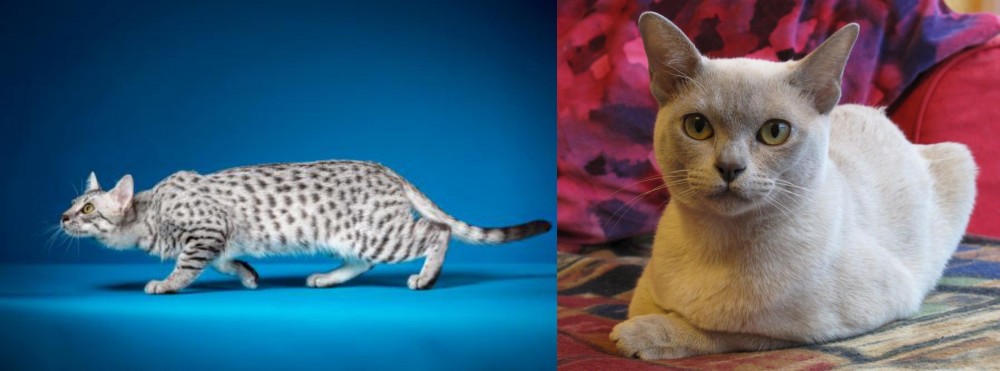 Egyptian Mau is originated from Egypt but European Burmese is originated from Myanmar. Both Egyptian Mau and European Burmese are having almost same weight. Both Egyptian Mau and European Burmese has almost same life span. Both Egyptian Mau and European Burmese has same litter size. Both Egyptian Mau and European Burmese requires Low Maintenance.
Egyptian Mau is originated from Egypt but European Burmese is originated from Myanmar. Both Egyptian Mau and European Burmese are having almost same weight. Both Egyptian Mau and European Burmese has almost same life span. Both Egyptian Mau and European Burmese has same litter size. Both Egyptian Mau and European Burmese requires Low Maintenance.
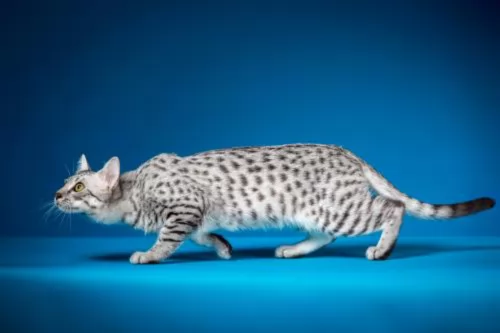 The Egyptians have always been interested in cats, and it is believed that in 1953 a noblewoman left Egypt with a tabby cat, returning to Italy.
The Egyptians have always been interested in cats, and it is believed that in 1953 a noblewoman left Egypt with a tabby cat, returning to Italy.
Later, another cat was also brought to Italy and the pair were mated. The Egyptian Mau is a natural breed.
In 1956, a kitten of the pair was brought to the United States and the Egyptian Mau was developed. A breeding program was started in the United States. The breed Egyptian Mau was recognized in 1958 in the United States and 1992 in Europe.
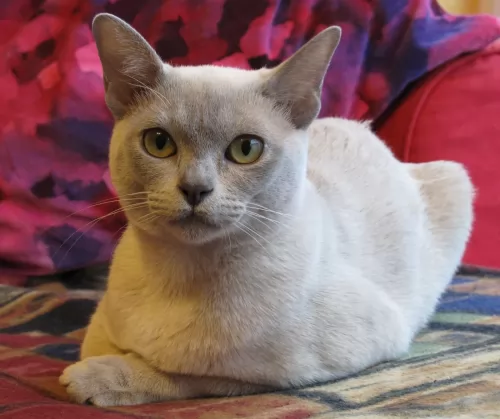 The European Burmese was developed in the 1960s when they were imported to England by British breeders.
The European Burmese was developed in the 1960s when they were imported to England by British breeders.
They were then crossed with red-point Siamese as well as British Shorthairs to expand the gene pool and number of coat colors.
In 1994, the cat was recognized by the Cat Fanciers Association and later by the Canadian Cat Association as well as the Cat Fanciers Federation and others as well.
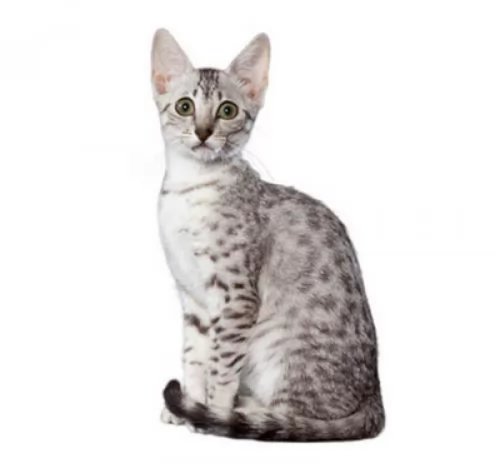 This is a medium-sized, long, athletic cat that is well muscled. It weighs between 3 to 5kg. The Mau is heavily muscled and strong. It has a triangular-shaped head with large almond-shaped eyes.
This is a medium-sized, long, athletic cat that is well muscled. It weighs between 3 to 5kg. The Mau is heavily muscled and strong. It has a triangular-shaped head with large almond-shaped eyes.
The coat of the Mau is medium in length and is glossy and soft. There are spots on the coat but the cat is particularly well known for the dark stripe that runs from its head to its tail. The coat comes in several different colors such as silver, black, tan and blue. All Maus have green eyes.
These cats are known for being loyal and friendly and they love warm weather and enjoying a spot in the sun.
They are talkative cats too and also love to sit on high perches and survey the world from these high positions. They are excellent climbers and you’ll need to supply these cats with a climbing tree. Its an intelligent breed and he will get along well with children in the home as well as be friendly towards other pets.
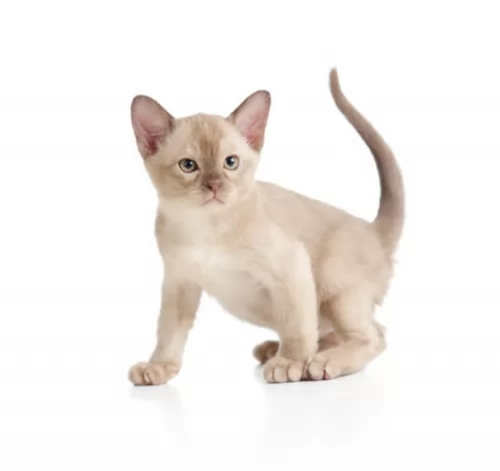 Your beautiful European Burmese cat is a small to medium-sized cat and both males and females will weigh between 3 and 5kg.
Your beautiful European Burmese cat is a small to medium-sized cat and both males and females will weigh between 3 and 5kg.
The cat’s coat is short and glossy and it comes in a number of different colors such as white, brown, cream, blue, red and tortoisehell.The cat has large, expressive eyes that are a yellow or amber shade.
Your European Burmese has a silky short coat and the coat will also only need to be brushed once a week to keep it in tip-top condition.
The European Burmese is a very affectionate, loyal ad intelligent cat, loving the companionhip they share with their human family.
They’re a great pet for families as they’re active and playful. They are also a cat breed that likes to bond with one particular family member more than others.
They’re also inclined to be lap cats, grabbing each opportunity to be stroked and petted. They will also be quite willing to become friends with other pets in the home and don’t like to be left alone for a long time.
They like having other pets around to keep them company and can become withdrawn if constantly left on their own.
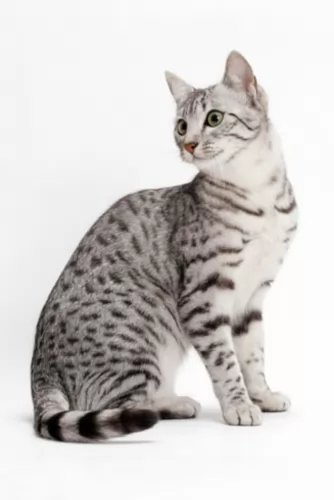 These are social cats with their own human family but the Egyptian Mau does tend to be a bit reserved around strangers.
These are social cats with their own human family but the Egyptian Mau does tend to be a bit reserved around strangers.
They make excellent pets and companions and if he is happy, you’ll hear him making little noises to express his contentment.
What also makes him so attractive as a pet is that he is a short-coated cat that is considered to be low maintenance.
Before you decide to take on any animal as a pet and before you bring the Egyptian Mau into your home, do thorough research on this rare cat breed. If you do decide to take him in, find out all you can on how to provide for him so that he receives the best care and love in your home.
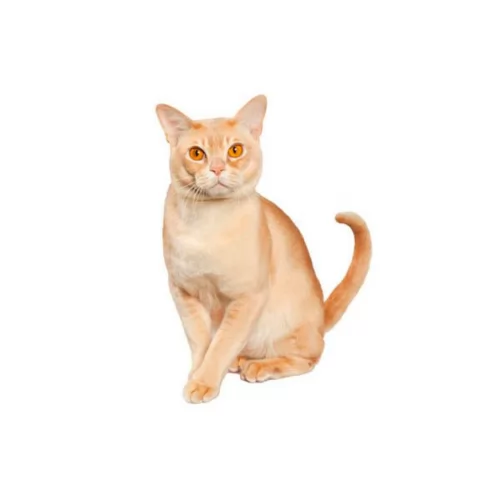 Your European Burmese has a sweet disposition and it is a loving, companionable cat. They enjoy the company of their human owners as well as other pets.
Your European Burmese has a sweet disposition and it is a loving, companionable cat. They enjoy the company of their human owners as well as other pets.
They can be quite vocal too and they don’t like being left alone. If you work all day, it will be a good idea to have another pet as a companion for the European Burmese.
The European Burmese loves to play and is a fun-loving, active, social cat. While they love their human family, they may not make the greatest pet for an inactive, single person as these cats actually seek out companionship.
A person unable to involve themselves with this cat, may well find it becoming depressed. These are cats that require a lot of interaction and attention, craving the attention of their human families.
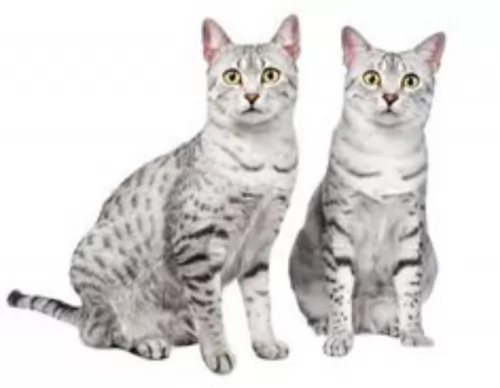 Egyptian Maus are strong, robust cats and they don't have any particular health problems.
Egyptian Maus are strong, robust cats and they don't have any particular health problems.
Obesity is a major disease with this cat and all other cats and it's worth noting, as obesity contributes to a great number of illnesses in cats. Excess weight can lead to diabetes and arthritis and well as other life-threatening diseases.
Two things that play an important role in his health are ensuring that he has access to excellent, nutritious, meaty food, as cats are carnivores.
You also want to ensure that he gets all his vaccines and de-wormings. If you notice that your cat seems to be under the weather, get him to the vet as soon as possible.
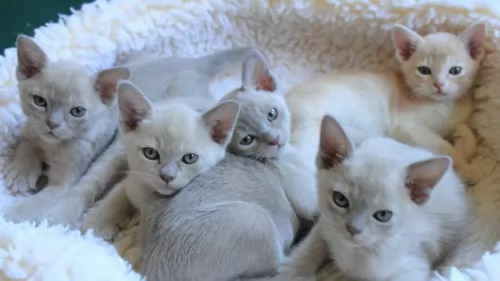 The European Burmese is a fairly healthy cat and is unlikely to cost you a lot in terms of vets fees.
The European Burmese is a fairly healthy cat and is unlikely to cost you a lot in terms of vets fees.
Just like with other cats, some of the common cat illnesses include developing diabetes mellitus. There have been some of these cats that ave been known to suffer from Feline Orofacial Pain Syndrome (FOPS).
It is a disease related to the teeth. Teeth problems are a common ailment with cats. With this particular problem, there is an unusual amount of pain when the cat's adult teeth begin to emerge. Your cat will be displaying a lot of licking and chewing motions. The symptoms do however go away once the adult teeth come in.
The cat will in all likelihood need to see the vet for pain medication and other treatments such as a potassium supplement.
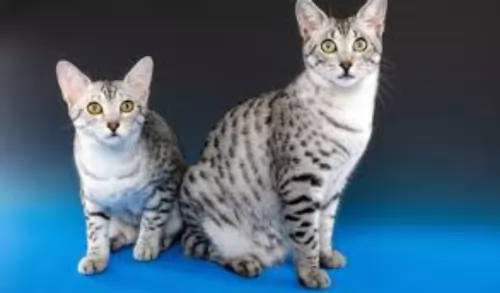 The beautiful coat of the Egyptian Mau is easy to care for and a weekly brushing will ensure it stays shiny and healthy.
The beautiful coat of the Egyptian Mau is easy to care for and a weekly brushing will ensure it stays shiny and healthy.
If he will let you, try to look inside his mouth to ensure the teeth and gums are healthy.
Remember, if there are any grooming activities for this cat that you feel you can’t cope with, professional groomers will do it for you.
Provide your Egyptian Mau with a climbing tree and scratching post as the cat loves to jump and climb.
He is an active, intelligent cat and needs to be stimulated with exciting toys, particularly when you’re not around to entertain him.
Cats such as the Egyptian Mau are clean and they want their litterbox to be kept clean. Invest in scoop and rake and rid the litter box every day of cat droppings. There also comes a time when you will have to replace all the sand or grit as well.
It will be fantastic if you can provide this cat with a water fountain and a type of pool as they love playing in water.
Make sure your Mau has constant access to fresh, cool drinking water.
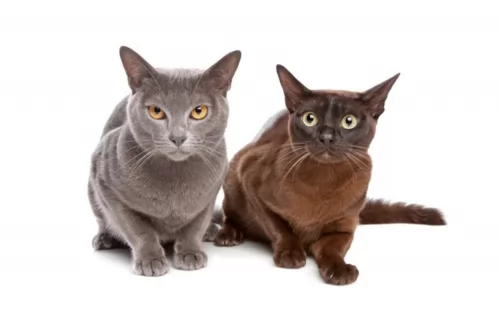 Because the European Burmese is a very affectionate, loyal cat, and because they thrive on the companionship of their human family, you owe it to him to provide him with consistent companionship. They are friendly cats and will be amicable to visitors to the home too.
Because the European Burmese is a very affectionate, loyal cat, and because they thrive on the companionship of their human family, you owe it to him to provide him with consistent companionship. They are friendly cats and will be amicable to visitors to the home too.
Scratching is a natural behavior of pets so instead of becoming angry with your cat when he scratches on your furniture, provide him with a scratching post.
You can also learn how to carefully clip your cat's nails, otherwise a professional cat groomer can do it for you.
It’s not always easy keeping a cat indoors and that is why neutering or spaying becomes important to avoid unwanted kittens. It makes your European Burmese a more balanced cat and it has a host of health benefits too.
It can’t be stressed enough how important good food is for the health of people and animals. The European Burmese needs top quality food high in proteins and meat to remain healthy.
If you feed your cat human food or food high in carbs, expect to spend a lot on vet fees.
Make sure your pet enjoys his food but that it is also nutritious and in the right portions to avoid obesity.
Kittens will eat 4 bowls of food a day and then progress to 2 bowls of food after the cat turns one year of age.